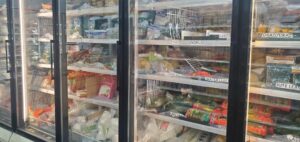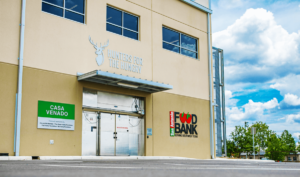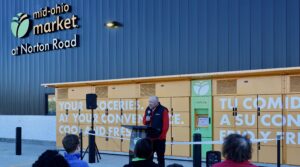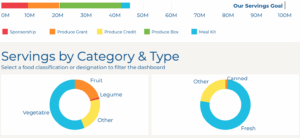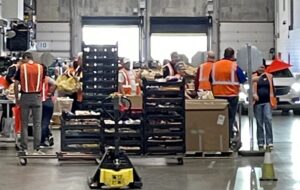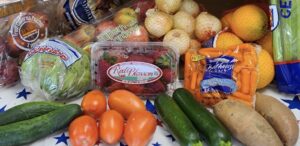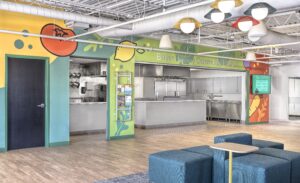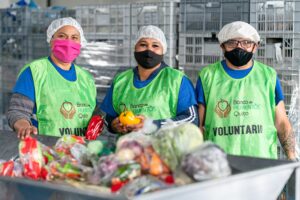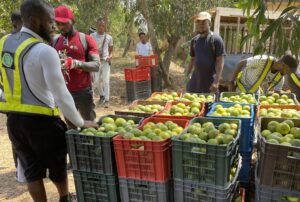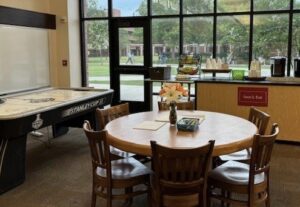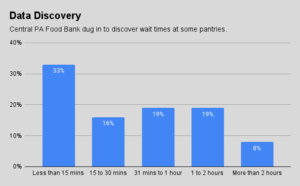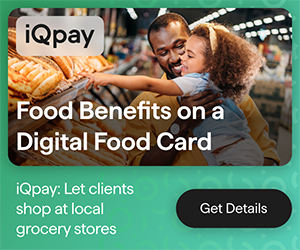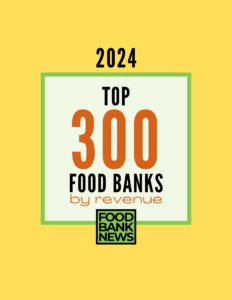To achieve its goal of ending food insecurity in Maine, Good Shepherd Food Bank is enlisting the help of broccoli.
The food bank, Maine’s largest, is starting a produce-processing company called Harvesting Good that will offer frozen produce year round to retail and institutional customers. The goal of the company is two-fold: to build up an additional source of nutritious food at a time when other sources are flat or declining in volume, and to strengthen the regional food system by creating a food-processing infrastructure for farmers in the Northeast.
“This is an opportunity to create a mission-branded product that supports local farmers and to end hunger,” said Kristen Miale, President of Good Shepherd, speaking about the project last month at the 2021 Northeast Farm to Institution Summit.
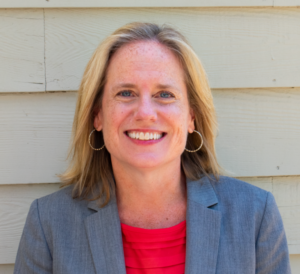
Broccoli will be the inaugural product of Harvesting Good, allowing Good Shepherd to take advantage of the high volume of broccoli grown in the state, and the fact that its growing season comes right after blueberries, another high-volume crop. Rather than build an operation from scratch, Harvesting Good will take advantage of the freezing and packaging operations of the region’s blueberry processors, which usually remain idle outside of blueberry season.
Good Shepherd is already well connected to the state’s agricultural sector through its Mainers Feeding Mainers program, in which it contracts farmers to grow food for the food bank. Started in 2010, the program works with about 80 farmers in the state to harness up to about two million pounds of produce per year.
Freezing and packaging produce through Harvesting Good will help Good Shepherd gain access to the additional millions of pounds of food it believes it needs to ensure food security throughout the state by 2025, Miale said. “We need to find a new source of healthy food, and we really see local produce as the best resource,” she said. “But we’re limited to how much we can move when it’s fresh.”
In addition to creating a new channel of low- or no-cost food for its partner agencies, the food bank will have more ready-to-eat products for seniors, as well as a source of local affordable food to sell to schools, hospitals and retail grocers. It will also be creating year-round quality jobs and strengthening the reputation of Maine as a food-production state, Miale said.
Harvesting Good will be a for-profit public-benefit corporation wholly owned by Good Shepherd Food Bank, with a goal of breaking even or at best generating a small profit. Good Shepherd will provide access to the funding needed to upgrade the processing equipment to handle vegetables. “No one driven by profit would go into this business,” Miale noted.
Harvesting Good will be investing about $2.5 million into existing blueberry production facilities to equip them with broccoli floret cutting machines. “Our biggest financial lever is scale,” said Matt Chin, President of Harvesting Good. “It’s the only way to break even.”
Chin said he hopes to be selling one million pounds of frozen broccoli as soon as next year. He outlined a goal of growing that to two million pounds in 2023 and five million the following year. “Our plans are ambitious,” he said.
Long-term goals are to have six agricultural products, generating $15 million to $20 million in annual revenue. Chin said the second product was planned to get under way in 2024.
He detailed the projected production process, which starts with broccoli being grown close to the Canadian border. After being hydro-cooled, it then proceeds on a four-hour trip to a facility where it is cut into florets, blanched and frozen. Then another hour’s drive to be packaged and stored before being delivered to retail and institutional outlets.
Chin expects that changing consumer tastes may help in Harvesting Good’s growth. “We hope it will become a preferred brand as people place higher value on locally sourced products,” he said. — Mark Fogarty
Mark Fogarty is a finance writer with interests in affordable housing, permanent housing for the homeless and other topics. He is the former editor of National Mortgage News and has freelanced articles for Indian Country Today, The Housing Scene, and Tax Credit Advisor.
Like what you’re reading?
Support Food Bank News

